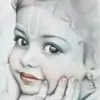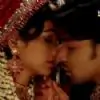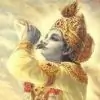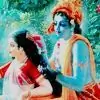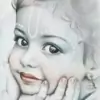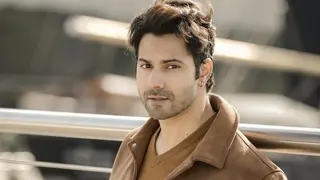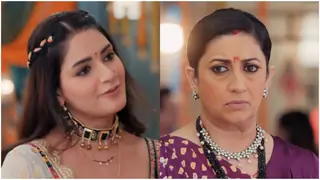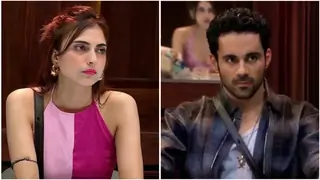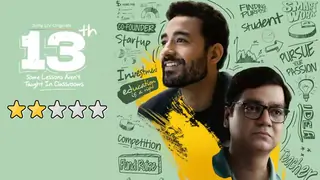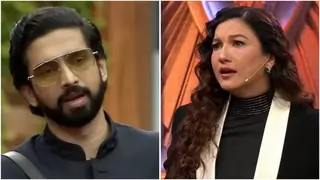Now this is the KMG translation text of Bhishma Parva when Krishna rushes towards Bhishma with his Sudarshan (3rd day of war):
Beholding that those foremost of kings were flying together from the field of battle, and marking the mildness with which Partha fought, and beholding also that Bhishma was exerting himself very powerfully in battle, and that the Kurus were rushing from all sides, the younger brother of Vasava, the high-souled protector of all the Dasarhas, unable to bear it all, addressed the renowned grandson of Sini, and applauding him, said,--'O hero of Sini's race, they that are retreating, are, indeed, retreating. They that are yet staying, O thou of the Satwata race, let them also go away. Behold, I will soon throw Bhishma down from his car, and Drona also in battle, with all their followers. There is none in the Kuru host, O thou of the Satwata race, who is able to escape my angry self. Therefore, taking up my fierce discus, I will slay Bhishma of high vows. And slaying in battle those two foremost of car-warriors, viz., Bhishma along with his followers and Drona also, O grandson of Sini, I will gladden Dhananjaya, and the king, and Bhima, and the twin Aswins. And slaying all the sons of Dhritarashtra and all those foremost of kings who have embraced their side, I will joyfully furnish king Ajatasatru with a kingdom today.' Saying this, Vasudeva's son, abandoning (the reins of) the steeds, jumped down from the car, whirling with his (right) arm his discus of beautiful nave with edge sharp as a razor, effulgent as the sun and possessed of force equal to that of a thousand bolts of heaven. And making the earth tremble under his tread, the high-souled Krishna rushed impetuously towards Bhishma. And that grinder of foes, the younger brother of the chief of the gods, excited with wrath, rushed towards Bhishma staying in the midst of his troops, like a lion from desire of slaying upon a prince of elephants blinded with fury and staying proudly for the attack. And the end of his yellow garments waving in the air looked like a cloud charged with lightning in the sky. And that lotus of a discus called Sudarsana, having for its stalk the beautiful arm of Saurin, looked as beautiful as the primeval lotus, bright as the morning sun, which sprung from the navel of Narayana. And Krishna's wrath was the morning sun that caused that lotus to blow. And the beautiful leaves of that lotus were as sharp as the edge of a razor. And Krishna's body was the beautiful lake, and his (right) arm the stalk springing therefrom, upon which that lotus shone. And beholding the younger brother of Mahendra, excited with wrath and roaring loudly and armed with that discus, all creatures set out a loud wail, thinking that the destruction of the Kurus was at hand. And armed with his discus Vasudeva looked like the Samvarta fire that appears at the end of the Yuga for consuming the world. And the preceptor of the universe blazed up like a fierce comet risen for consuming all creatures. And beholding that foremost of bipeds, that divine personage, advancing armed with the discus, Santanu's son stationed on his car, bow and arrow in hand, fearlessly said, 'Come, Come, O Lord of the gods, O thou that hast the universe for thy abode. I bow to thee, O thou that art armed with mace, sword and Saranga. O lord of the universe, forcibly throw me down from this excellent car, O thou that art the refuge of all creatures in this battle. Slain here by thee, O Krishna, great will be my good fortune both in this world and the next. Great is the respect thou payest me, O Lord of the Vrishnis and the Andhakas. My dignity will be celebrated in the three worlds.' Hearing these words of Santanu's son, Krishna rushing impetuously towards him said, 'Thou art the root of this great slaughter on earth. Thou wilt behold Duryodhana slain to-day. A wise minister who treadeth in the path of righteousness should restrain a king that is addicted to the evil of gambling. That wretch again of his race who transgresseth duty should be abandoned as one whose intelligence hath been misdirected by destiny.--The royal Bhishma, hearing these words, replied unto the chief of the Yadus, saying,--Destiny is all powerful. The Yadus, for their benefit, had abandoned Kansa. I said this to the king (Dhritarashtra) but he minded it not. The listener that hath no benefit to receive becometh, for (his own) misery, of perverted understanding through (the influence of destiny).' Meanwhile, jumping down from his car, Partha, himself of massive and long arms, quickly ran on foot after that chief of Yadu's race possessed of massive and long arms, and seized him by his two hands. That first of all gods devoted in self, Krishna, was excited with rage. And therefore, though thus seized, Vishnu forcibly dragged Jishnu after him, like a tempest bearing away a single tree. The high-souled Partha, however, seizing them with great force his legs as he was proceeding at a quick pace towards Bhishma, succeeded, O king, in stopping him with difficulty at the tenth step. And when Krishna stopped, decked as he was with a beautiful garland of gold, cheerfully bowed down to him and said, 'Quell this wrath of thine. Thou art the refuge of the Pandavas, O Kesava. I swear, O Kesava, by my sons and uterine brothers that I will not withdraw from the acts to which I have pledged myself. O younger brother of Indra, at thy command I will certainly annihilate the Kurus.' Hearing that promise and oath of his, Janardana became gratified. And ever engaged as he was in doing what was agreeable to Arjuna--that best of the Kurus.--he once more, discus on arm, mounted on his car.
Now this is the KMG translation text of Bhishma Parva when Krishna rushes towards Bhishma once again (9th day of war):
"Then that delighter of the Yadavas, beholding the Pandava army breaking, reined the excellent car (that he guided), and addressing Vibhatsu the son of Pritha, said,--That hour is come, O Partha, which thou hadst hoped for. Strike now, O tiger among men, or thou wilt be deprived of thy senses. Formerly, O hero, thou saidst, O Partha, in that conclave of kings in Virata's city, in the presence also of Sanjaya, these words:--'I will slay all the warriors of Dhritarashtra's son, all of them with their followers, including, Bhishma and Drona, that would fight with me in battle--O son of Kunti, O chastiser of foes, make those words of thine true. Remembering the duty of a Kshatriya, fight, without any anxiety.' Thus addressed by Vasudeva, Arjuna hung down his head and looked askance at him. And Vibhatsu replied very unwillingly, saying, 'To acquire sovereignty with hell in the end, having slain those who should not be slain, or the woes of an exile in the woods,--(these are the alternatives). Which of these should I achieve? Urge the steeds, O Hrishikesa, I will do thy bidding. I will overthrow the Kuru grandsire Bhishma, that invincible warrior.'--Thus asked, Madhava urged those steeds of a silvery hue, to the spot where Bhishma, incapable of being looked at like the Sun himself, was staying. Then that large host of Yudhishthira rallied and came again to the fight, beholding the mighty-armed Partha proceeding for an encounter with Bhishma. Then Bhishma that foremost one among the Kurus, repeatedly roared like a lion. And he soon covered Dhananjaya's car with a shower of arrows. Within a trice that car of his with its steeds and charioteer, became entirely invisible in consequence of that thick shower of arrows. Vasudeva, however, without fear, mustering patience, and endued with great activity, urged those steeds mangled with Bhishma's shafts. Then Partha, taking up his celestial bow of twang loud as the roar of the clouds, caused Bhishma's bow to drop from his hands, cutting it (into fragments) by means of his sharp shafts. Then thy sire, the Kuru hero, whose bow had thus been cut off, stringed another large bow within the twinkling of the eye. Arjuna, however, excited with wrath, cut that bow also of his. The son of Santanu applauded that lightness of hand displayed by Arjuna, saying, 'Well done, Well done, O mighty-armed one. Well done, O son of Kunti.'--Having addressed him thus, Bhishma took up another beautiful bow in that battle, and shot many arrows at Partha's car. And Vasudeva showed great skill in the management of steeds, for, displaying the circling motion he baffled all those arrows (of Bhishma). Mangled with the arrows of Bhishma, those two tigers among men looked beautiful like two angry bulls marked with scratches of horns. Then that slayer of hostile heroes, viz., the mighty-armed Vasudeva of Madhu's race beholding that Partha was fighting mildly and that Bhishma was incessantly scattering his arrowy showers in battle, and that stationed between the two hosts, he latter was scorching everything like the Sun himself, smiting down the foremost of Yudhishthira's combatants, and, in fact, achieving feat on Yudhishthira's army like unto what happeneth at the end of the Yuga, could not any longer bear it. Abandoning then, O sire, Partha's steeds that looked like silver, and filled with wrath, that great lord of Yoga powers jumped down from that great car. Repeatedly roaring like a lion, the mighty Krishna of great energy and immeasurable splendour, the Lord of Universe, with eyes red as copper from rage, and having his bare arms alone for his weapons, rushed towards Bhishma, whip in hand, desirous of slaying him and seeming to split the universe itself with his tread. Beholding Madhava in the vicinity of Bhishma and about to fall upon him in that furious battle, the hearts of all the combatants seemed to be in a stupor. 'Bhishma is slain, Bhishma is slain.'--These loud exclamations were heard there, O king, caused by the fear inspired by Vasudeva. Robed in yellow silk, and himself dark as the lapis lazuli, Janarddana, when he pursued Bhishma, looked beautiful as a mass of clouds charged with lightning. Like a lion towards an elephant, or the leader of a bovine herd upon another of his species, that bull of Madhu's race, with a loud roar, impetuously rushed towards Bhishma. Beholding him of eyes like lotus petals (thus) rushing towards him in that battle, Bhishma began to fearlessly draw his large bow. And with a fearless heart he addressed Govinda, saying, 'Come, come, O thou of eyes like lotus petals. O God of the gods, I bow to thee. O best of the Satwatas, throw me down today in this great battle. O god, slain by thee in battle, O sinless one, great will be the good done to me, O Krishna, in every respect in the world. Amongst all, in the three worlds, great is the honour done to me today in battle, O Govinda. Strike me as thou pleasest, for I am thy slave, O sinless one.' Meanwhile, the mighty-armed Partha. quickly following Kesava behind, seized him by encircling him with his two arms. That best of male beings, viz., Krishna, of eyes like lotus petals, seized by Partha, still proceeded with great speed, bearing the latter away with him. The mighty Partha, that slayer of hostile heroes, however, forcibly catching hold of his legs, stopped Hrishikesa with great difficulty at the tenth step. Then Arjuna his dear friend, filled with sorrow, affectionately addressed Kesava, who was then sighing like a snake and whose eyes were troubled in wrath, saying, 'O thou of mighty arms, stop, O Kesava, it behoveth thee not to make those words false which thou hadst spoken before, viz., I will not fight. O Madhava, people will say that thou art a liar. All this burden resteth upon me. I will slay the grandsire. I swear, O Kesava, by my weapons, by truth, and my good deeds, that, O slayer of foes, I will do all by which the destruction of my foes may be achieved. Behold this very day that invincible and mighty car-warrior in the act of being thrown down by me, with the greatest ease, like the crescent moon at the end of the Yuga (when the destruction of the universe comes). Madhava, however, hearing these words of the high-souled Phalguni, spoke not a word, but in anger once more mounted upon the car.
Edited by ShivangBuch - 14 years ago


